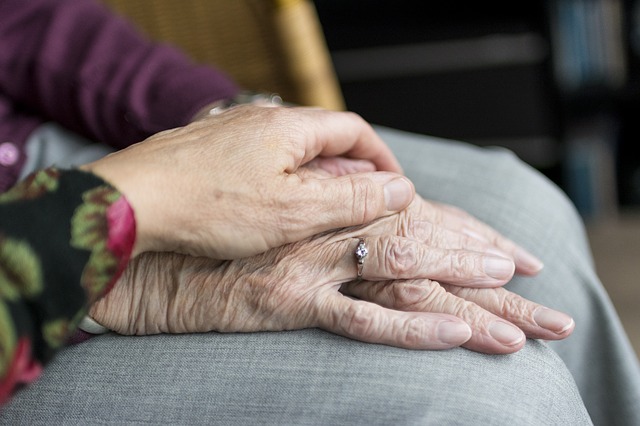 Caring for a loved one at home can be a blessing and also an overwhelming responsibility, especially if your senior is very ill and unable to take care of themselves. Dates out with your spouse or even a simple bath can be tasks that you have to meticulously plan for so that your senior is not left alone. All this responsibility can lead to feelings of “caregiver burnout.” When you have “caregiver burnout,” you experience physical, mental and spiritual exhaustion. You may also feel anxious, stressed, depressed, frustrated, have unrelenting fatigue or can’t sleep, or may even experience a flare-up of pain or other medical symptoms you may never have had before. The good news is that caregiver burnout isn’t something you have to live with. There are things you can do to improve the quality of your life and the person you’re caring for. They are as follows:
Caring for a loved one at home can be a blessing and also an overwhelming responsibility, especially if your senior is very ill and unable to take care of themselves. Dates out with your spouse or even a simple bath can be tasks that you have to meticulously plan for so that your senior is not left alone. All this responsibility can lead to feelings of “caregiver burnout.” When you have “caregiver burnout,” you experience physical, mental and spiritual exhaustion. You may also feel anxious, stressed, depressed, frustrated, have unrelenting fatigue or can’t sleep, or may even experience a flare-up of pain or other medical symptoms you may never have had before. The good news is that caregiver burnout isn’t something you have to live with. There are things you can do to improve the quality of your life and the person you’re caring for. They are as follows:
Get Help from a Professional
Hiring a home health care agency, like the Nurses Guild, will help relieve you of your responsibilities once in a while. Not only are they a family oriented home health care agency, but they treat their clients like family. They provide patients with complete and proper medical care, are Medicare and Medicaid accredited, and owned by nurses and a former hospital administrator. Their mission is to ensure that your loved one receives quality medical care at all times.
By hiring someone like the Nurses Guild, you can spend time doing the things you need to do to take care of you!
Get Plenty of Exercise and Sleep
In addition to seeking assistance, you should do things to improve your overall health. For instance, you need to exercise and get enough rest. Exercise not only keeps you healthier, but it also helps you to manage stress. Add in adequate sleep to your new healthy lifestyle and to rejuvenate your mind, body, and spirit.
It’s hard to exercise if you don’t get enough sleep, and it’s hard to sleep when you don’t get enough exercise. Staying on a regular schedule helps with both.
Eat a Healthy Diet.
When we’re stressed and hungry, it’s easy to reach for the potato chips instead of something healthier, and researchers say stress hormones make us likelier to reach for foods high in fat and sugar. Having nutritious alternatives around when hunger strikes makes it easier to control what you eat, especially when we are tired, hungry, and just don’t feel like cooking.
Take Care of Your Own Health.
It is easy to put off your health care when you feel overwhelmed. If you can’t leave home, ask a home health care agency to give you a break. Caregiving is demanding even when you’re in good shape; even harder when you’re not. Knowing you are feeling your best also puts the person you are caring for at ease and makes them less likely to feel guilty.
Stay in Touch with Friends.
It’s natural to cut back on hobbies and time with friends when someone else is depending on you for care, but it’s also important to keep a sense of balance. Emotional support and relaxation are more important than ever. Attend support groups for caregivers. Connect with others who are going through similar situations and talk about your feelings. Practices like yoga or mindfulness may also calm your nerves and help you unwind.
The more relaxed you are, the stronger the bond will be between you and the person receiving your home health care. If possible, spend some time doing activities you both enjoy, like working on a puzzle or listening to music. Anything that helps you relax will be useful for both of you.
In conclusion, caregiver burnout is real and can’t be ignored. Take note of how you’re feeling and when you feel the burnout coming on, do something about it. Don’t wait until those feelings get worst. Take action now! You can do it!


